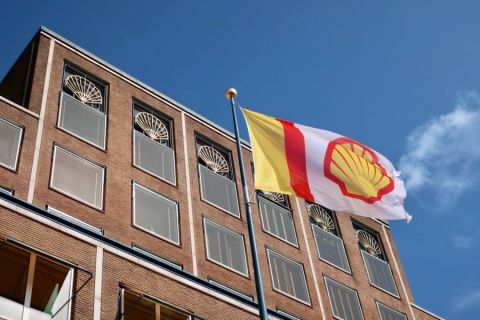The past five years have been a period of sustained international growth for the large independents, according to an IHS Energy evaluation. Ken Chew, senior manager, reviewed the five-year international performance of 24 of the largest independent companies. The group included such firms as Amerada Hess Corp., Anadarko Petroleum, BHP Billiton, EnCana Corp., Kerr-McGee Corp., Marathon Oil Corp., OMV AG, Ocean Energy, Santos Ltd., Talisman Energy Inc. and Unocal Corp. Geographically, the results of 12 U.S.-based firms, five Canadian, four European and three Australian were analyzed. These 24 firms were working throughout the world. At the end of 2002, the companies held interests in more than 1,080 contracts in 81 countries. That total was essentially unchanged from 1997, when some 1,020 contracts were held. Although the overall number of contracts has remained fairly steady, the amount of acreage under license has ballooned during the last five years. "We've seen an average annual increase of 17.7% in the area under license, from 1.52 million to 3.44 million square kilometers," Chew said at the IHS Energy-sponsored International Forum at NAPE 2003 in Houston. This has occurred as companies have replaced small contracts in mature areas with large, deepwater licenses. Last year, more than 60% of the total acreage taken up was in deep water. Australia and Hungary gained the most contracts, while Pakistan and the U.K. suffered striking losses. Certain countries dropped off the industry radar completely: Syria, Guatemala, Cuba, Namibia, Belize, Jordan and Eritrea are no longer of interest. Instead, companies have been picking up licenses in such new entrants as Brazil, Mauritania, the Faroe Islands and Israel. A welcome trend has been a jump in new-field wildcat success rates. On average, international success rates have increased an average of 6% annually, rising from 34.8% in 1998 to at least 43.9% in 2002. "Bear in mind that we do not yet have all the results for 2002, and some wells that are classified as tight holes will turn out to be discoveries," Chew said. Naturally, some areas of the globe were much more fruitful than other areas. Worldwide, the largest find during the past five years was the 13-billion-barrel Kashagan discovery in Kazakhstan in the shallow waters of the Caspian Sea. Other nations with excellent records-yielding total discoveries of more than 2 billion barrels of oil equivalent (BOE)-were Egypt, Indonesia, Bolivia and Angola. Aside from Kazakhstan, explorers found the largest-size fields in Angola, Algeria, Malaysia, and Trinidad and Tobago. Countries with the highest numbers of discoveries, albeit smaller in size, were Australia, Indonesia and Egypt. The international explorers with above-average wildcat success during the five-year period were OMV, BG Group, Unocal, Pioneer Natural Resources and Santos. Each posted success rates for new-field wildcats of 50% or greater. In additions of net resources from international activities, BG Group (thanks to its participation in Kashagan) and Unocal were clearly dominant. Collectively, the 24 companies grew their international production an average of 7.2% per year, from 2.68 million BOE in 1998 to 3.31 million in 2001. Norsk Hydro, Talisman, Amerada Hess and Woodside Petroleum enjoyed the largest spikes in international production. Perhaps surprisingly, the production gains from North America outweighed those of the international holdings. "The reason is largely the acquisition of Canadian companies by U.S. companies," he said. Overall, international production accounted for 45% of the companies' total in 2001. Proved reserves from international operations followed the same upward trend as production, rising an average of 7.8% per year, from 11.33 billion BOE to 14.19 billion during the period. Norsk Hydro, BG Group, Anadarko Petroleum and Devon Energy led the group in additions of international proved reserves. "Companies are constantly shifting ground, always looking for the best opportunities," concluded Chew. "During the past five years, U.S. companies have moved into Canada in a big way, Canadian companies have become more international in scope, and international firms have completed the triangle by moving into the Gulf of Mexico."
Recommended Reading
1Q24 Dividends Declared in the Week of April 29
2024-05-03 - With earnings season in full swing, upstream and midstream companies are declaring quarterly dividends. Here is a selection of dividends announced in the past week.
Analyst Questions Kimmeridge’s Character, Ben Dell Responds
2024-05-02 - The analyst said that “they don’t seem to be particularly good actors.” Ben Dell, Kimmeridge Energy Partners managing partner, told Hart Energy that “our reputation is unparalleled.”
Tellurian Reports Driftwood LNG Progress Amid Low NatGas Production
2024-05-02 - Tellurian’s Driftwood LNG received an extension through 2029 with authorization from the Federal Energy Regulatory Commission and the U.S. Army Corps of Engineers.
Zeta Energy Appoints Michael Everett as COO
2024-05-02 - Prior to joining Zeta Energy, a lithium-sulfur battery developer, Michael Everett previously served as president and COO at Advanced Battery Concepts.
Shell Launches $3.5 Billion Share Buyback Program
2024-05-02 - Shell, which posted first-quarter adjusted earnings of $7.7 billion, will cancel all of the shares it buys.





